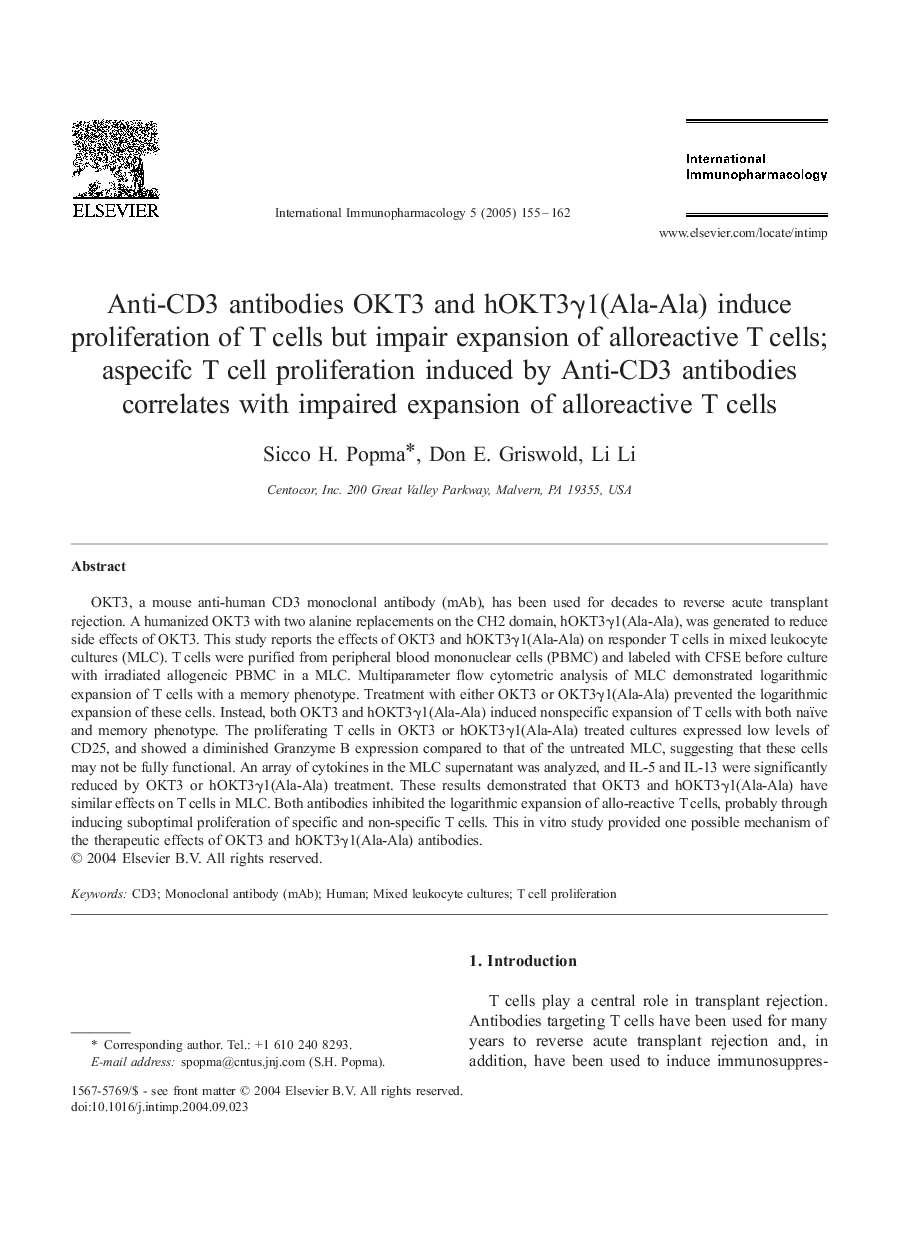| Article ID | Journal | Published Year | Pages | File Type |
|---|---|---|---|---|
| 9008214 | International Immunopharmacology | 2005 | 8 Pages |
Abstract
OKT3, a mouse anti-human CD3 monoclonal antibody (mAb), has been used for decades to reverse acute transplant rejection. A humanized OKT3 with two alanine replacements on the CH2 domain, hOKT3γ1(Ala-Ala), was generated to reduce side effects of OKT3. This study reports the effects of OKT3 and hOKT3γ1(Ala-Ala) on responder T cells in mixed leukocyte cultures (MLC). T cells were purified from peripheral blood mononuclear cells (PBMC) and labeled with CFSE before culture with irradiated allogeneic PBMC in a MLC. Multiparameter flow cytometric analysis of MLC demonstrated logarithmic expansion of T cells with a memory phenotype. Treatment with either OKT3 or OKT3γ1(Ala-Ala) prevented the logarithmic expansion of these cells. Instead, both OKT3 and hOKT3γ1(Ala-Ala) induced nonspecific expansion of T cells with both naïve and memory phenotype. The proliferating T cells in OKT3 or hOKT3γ1(Ala-Ala) treated cultures expressed low levels of CD25, and showed a diminished Granzyme B expression compared to that of the untreated MLC, suggesting that these cells may not be fully functional. An array of cytokines in the MLC supernatant was analyzed, and IL-5 and IL-13 were significantly reduced by OKT3 or hOKT3γ1(Ala-Ala) treatment. These results demonstrated that OKT3 and hOKT3γ1(Ala-Ala) have similar effects on T cells in MLC. Both antibodies inhibited the logarithmic expansion of allo-reactive T cells, probably through inducing suboptimal proliferation of specific and non-specific T cells. This in vitro study provided one possible mechanism of the therapeutic effects of OKT3 and hOKT3γ1(Ala-Ala) antibodies.
Related Topics
Life Sciences
Immunology and Microbiology
Immunology
Authors
Sicco H. Popma, Don E. Griswold, Li Li,
